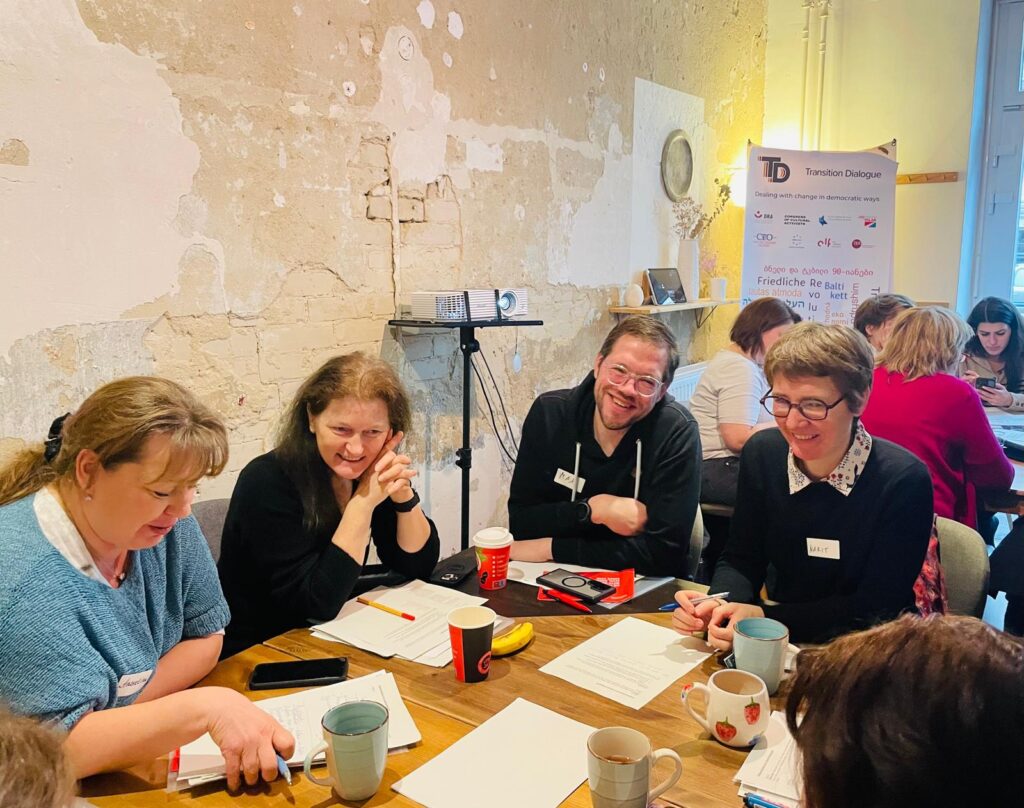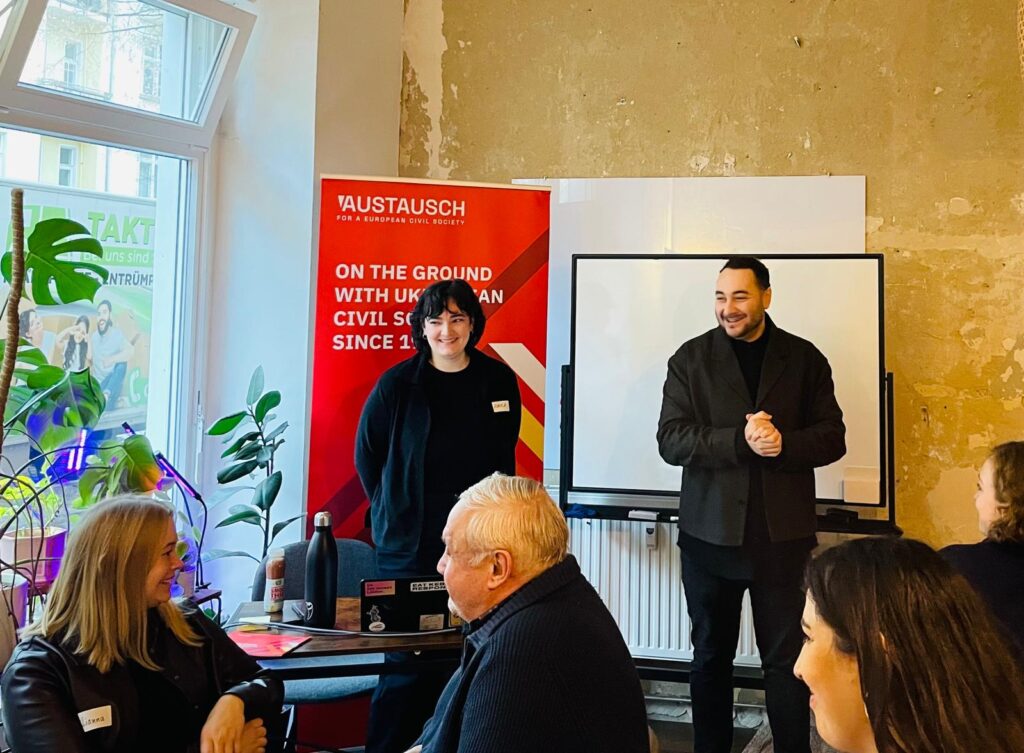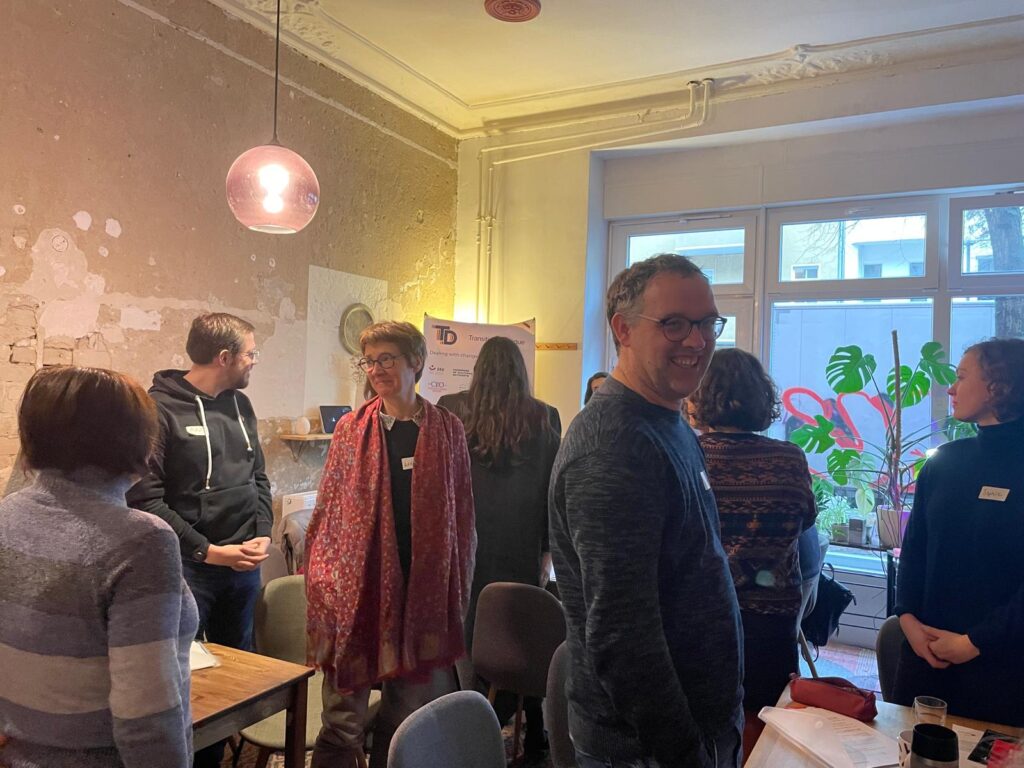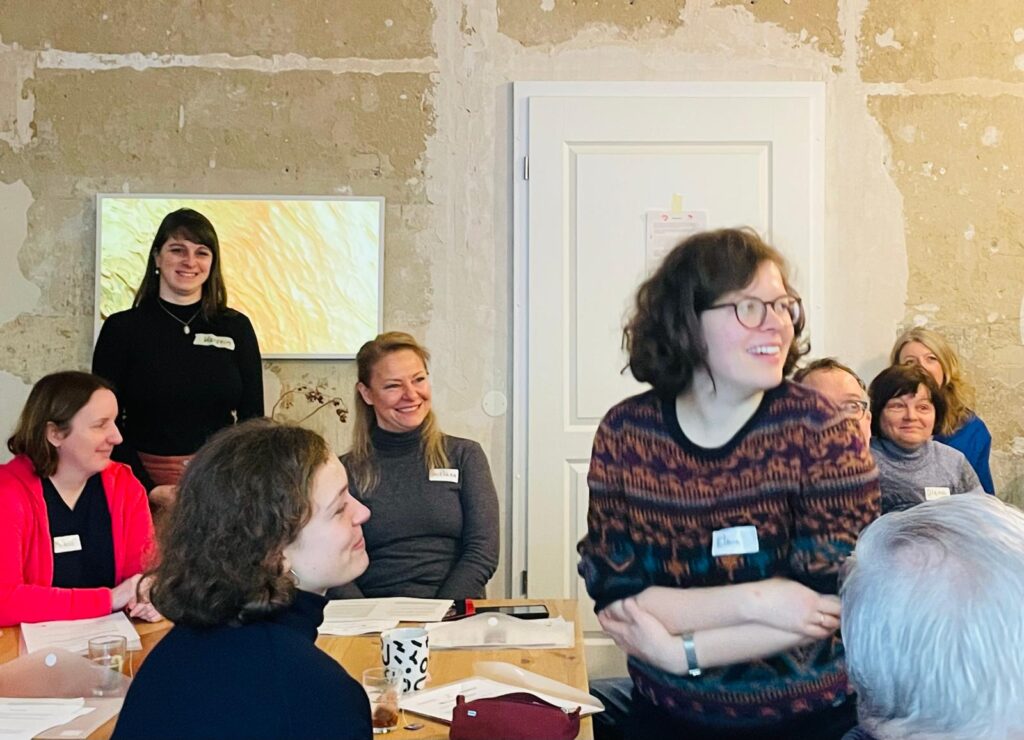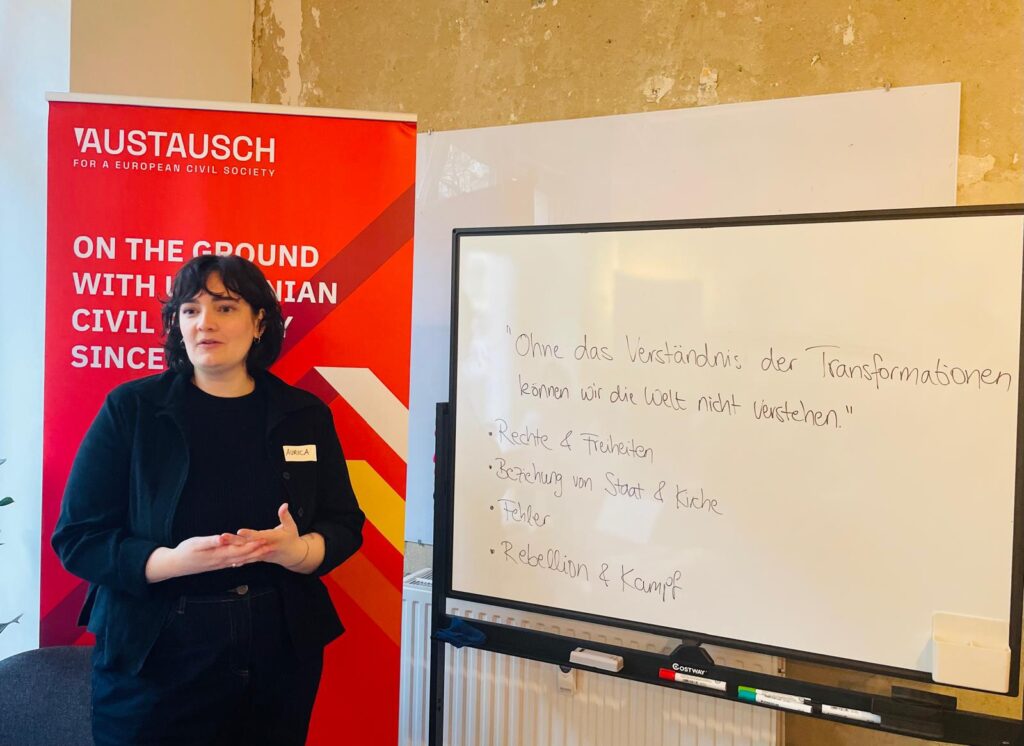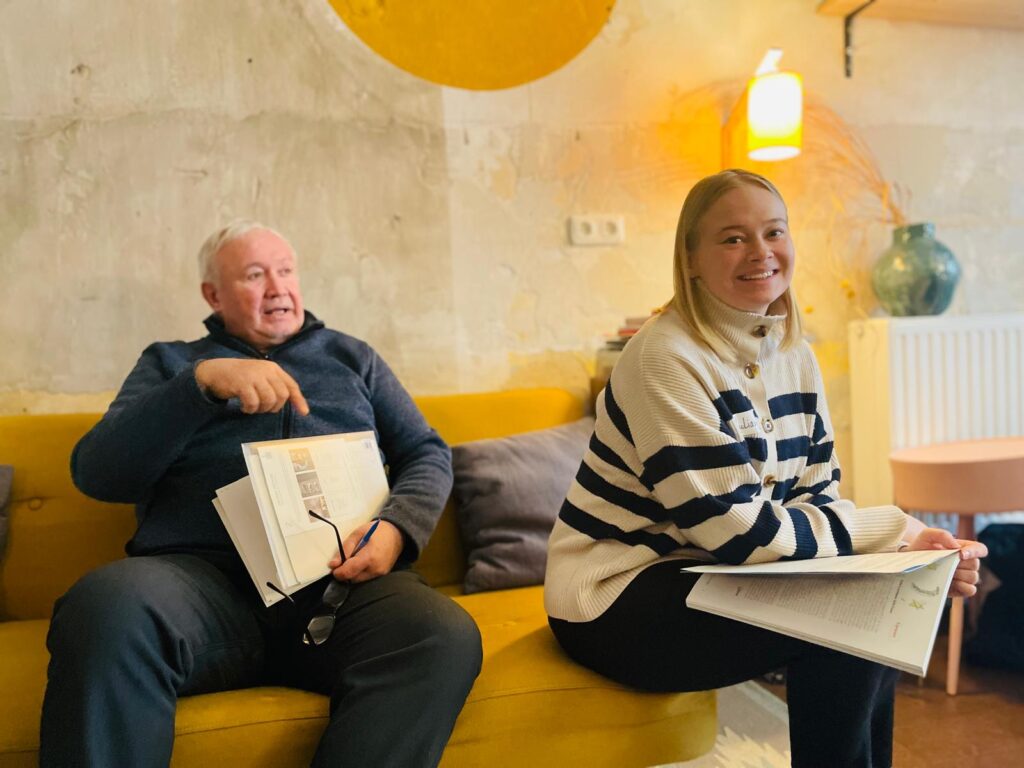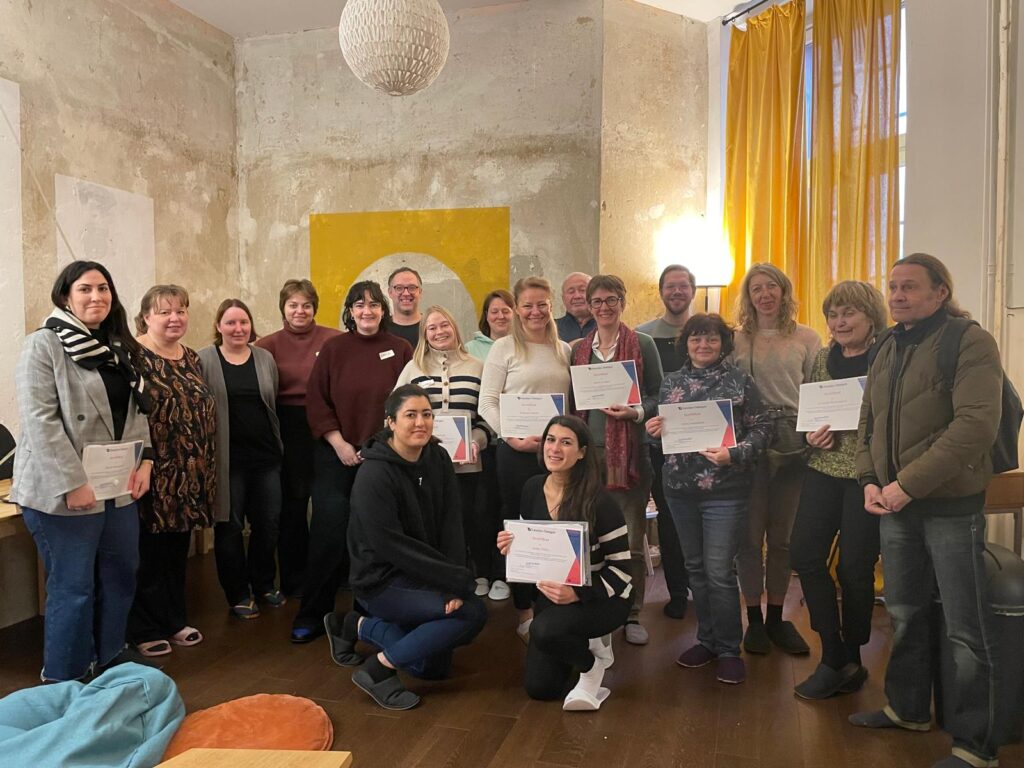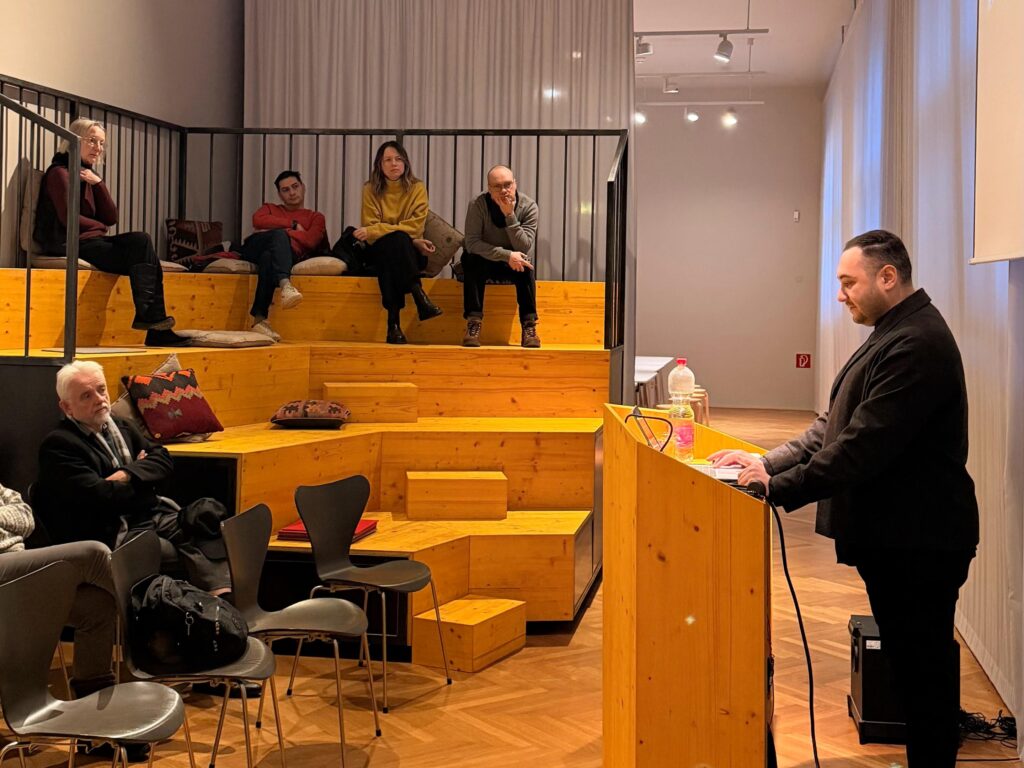Seminar “Understanding and Teaching Transformation after 1989” – Methodology, Perspectives, and Lesson Design
The seminar “Understanding and Teaching Transformation after 1989” took place at the Berlin educational center Zeitgeist Zentrum and brought together 25 educators across Germany. The focus was on teaching the period of transition after the fall of the Berlin Wall in an increasingly polarized society. Participants worked with teaching materials from the Transition Dialogue project and engaged intensively with concepts of multiperspective and the analysis of different transformation experiences.
Diversity of Perspectives
A distinctive feature of the seminar was the diversity of its participants. Teachers from both East and West Germany contributed different perspectives and migration histories, including experiences from Ukraine. This diversity enriched discussions and enabled a deeper engagement with the topic.
Methodology and Practical Application
The second part of the seminar focused on methodological questions and practical applications in the classroom. One key discussion centered on how controversial issues related to transformation can be addressed using Peter Seixas’ theoretical framework. His approach provides a structure for analyzing historical events from multiple perspectives, allowing for different interpretations in teaching.
As part of a World Café session, teachers explored the Transition Dialogue curriculum in depth. They then developed their lesson plans based on the learned methodological concepts. The goal was to create individualized lesson plans that make the topic of transformation tangible and comprehensible for students.
Expertise and Leadership
The seminar was led by trainer Aurica Liebing, with historian and project expert Kerstin Lorenz contributing her expertise. The event was opened by Igor Mitchnik, the first executive director of Austausch e.V.
The seminar underscored the importance of examining transformation experiences from various perspectives and equipping teachers with didactic tools to convey these complex topics effectively. The developed lesson plans and discussions provide a valuable foundation for a nuanced and critical engagement with the post-reunification period in German classrooms.
The event was made possible with the kind support of the Federal Ministry of the Interior and Community.
